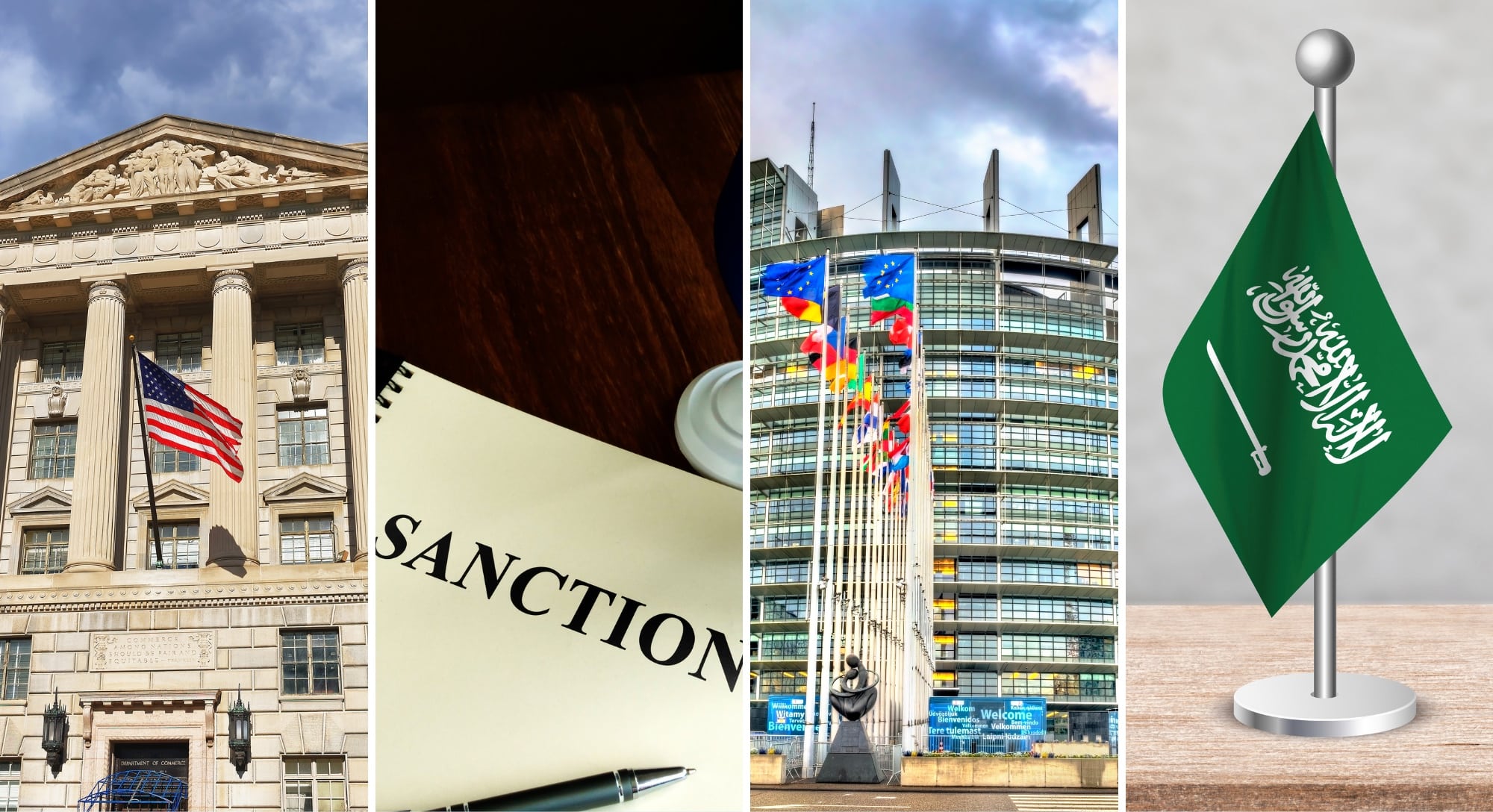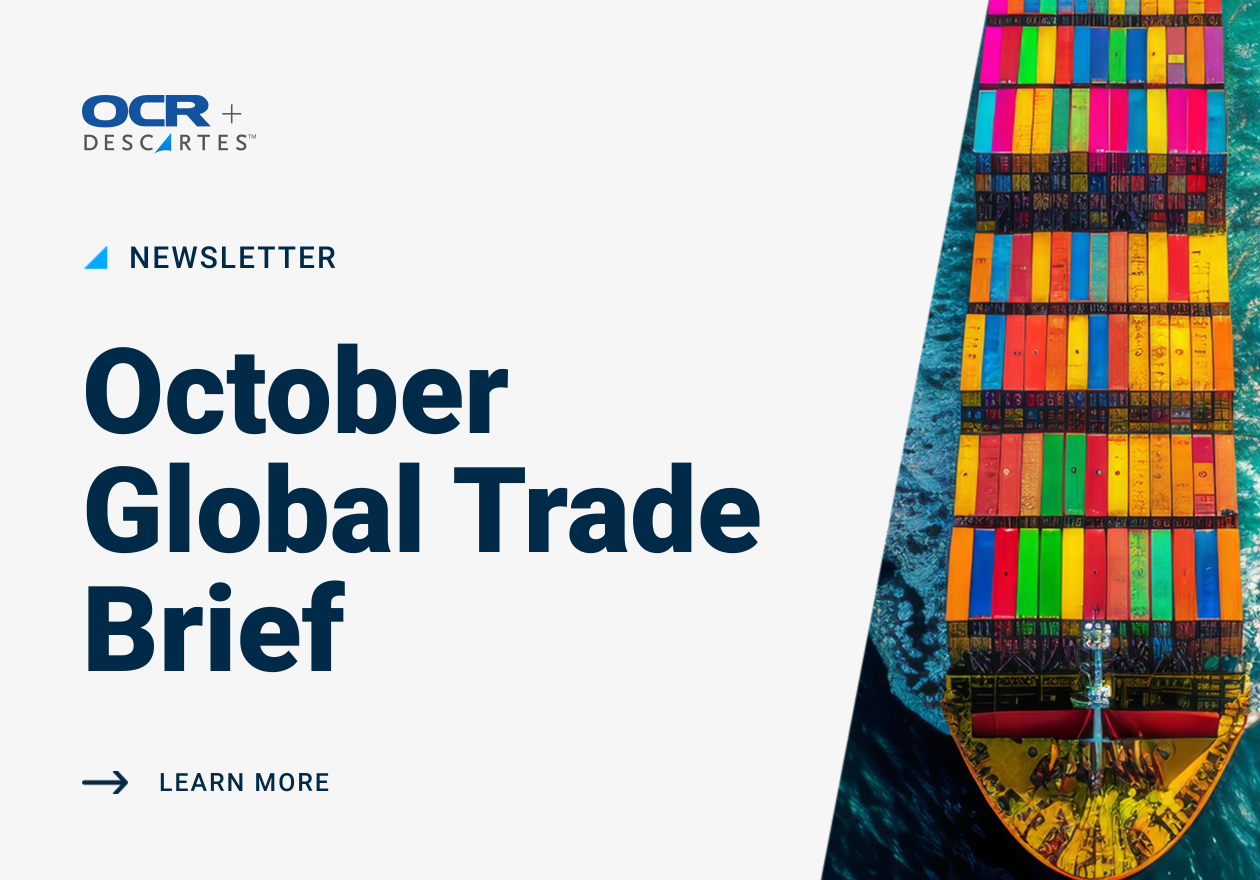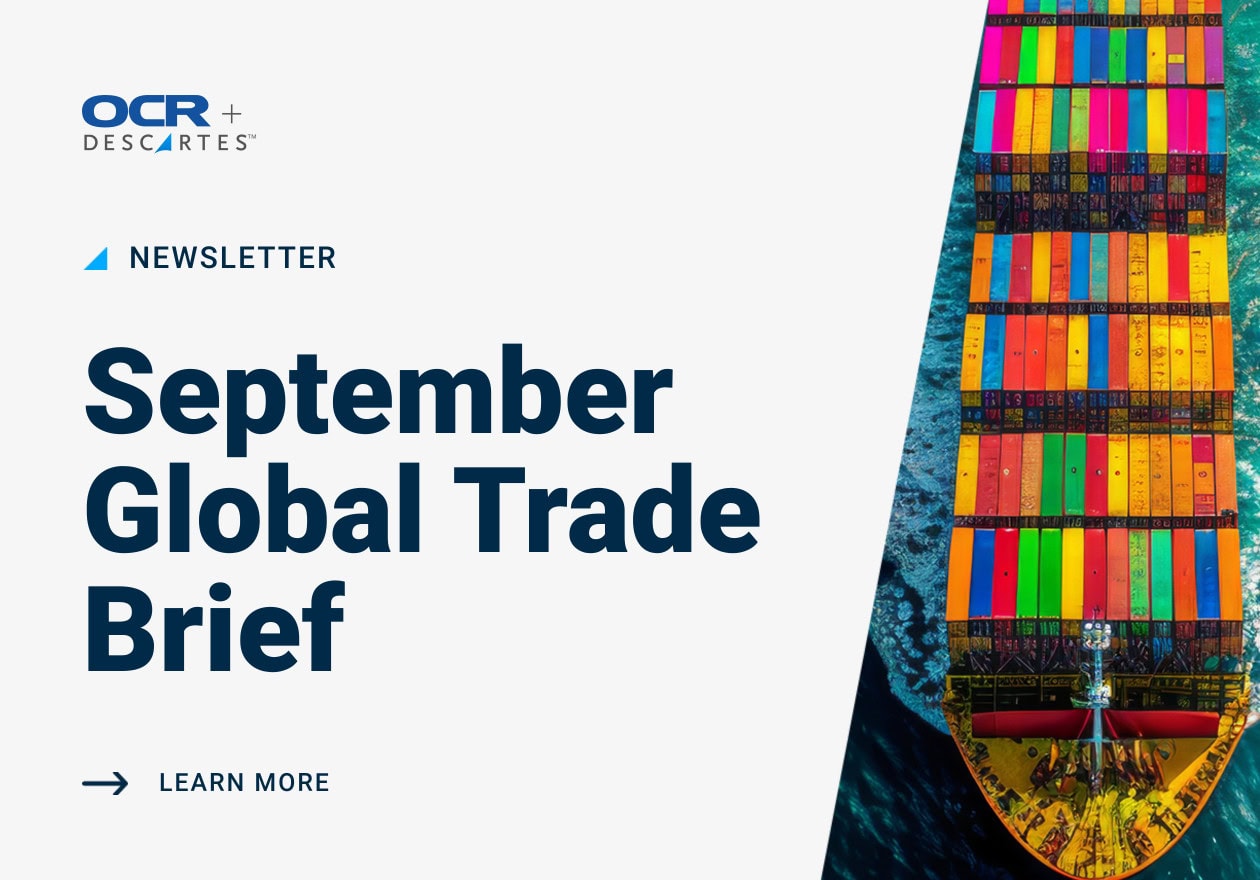North America
BIS Implements Stricter End-User Controls on SDN List Entities
In a move aimed at fortifying sanctions enforcement measures, the Bureau of Industry and Security (BIS) within the Department of Commerce announced significant revisions to the Export Administration Regulations (EAR) on Thursday, March 21, 2024. These amendments, designed to complement existing sanctions imposed by the Office of Foreign Assets Control (OFAC) under the Department of the Treasury, target individuals designated on the List of Specially Designated Nationals and Blocked Persons (SDN List).
The updated rule introduces expanded end-user controls on individuals listed on the SDN List under 14 distinct sanctions programs, covering areas such as
- Russia’s incursion into Ukraine,
- terrorism,
- weapons proliferation, and
- narcotics trafficking.
Under these provisions, any transaction involving an SDN-listed individual necessitates obtaining a license to export, reexport, or transfer (in-country) items subject to the EAR.
To streamline compliance procedures, the rule stipulates that transactions falling within its scope do not require separate EAR authorization if they are already authorized under an OFAC-specific or general license or exempted under OFAC regulations. Additionally, the rule consolidates various end-user licensing restrictions into a single section, § 744.8, facilitating easier identification of individuals subject to independent licensing requirements while extending the application of these requirements.
The rule ensures comprehensive oversight and consistency in compliance efforts by addressing potential jurisdictional gaps between U.S. export controls and sanctions. It broadens existing licensing requirements to cover all items subject to the EAR, thereby mitigating the risk of prohibited transactions not covered by either OFAC regulations or the EAR.
U.S. Commerce Department’s Latest CVD Rules Take Aim at Transnational Subsidies
The U.S. Department of Commerce has made a significant decision: It has eliminated a nearly four-decade-old regulation imposing countervailing duties on China’s subsidies to its trade partners. Despite foreign resistance due to potential conflicts with WTO obligations, this move signals a significant shift in global trade dynamics.
Under the new rule, Commerce can now investigate transnational subsidies, overturning restrictions confining investigations to domestic subsidies. While implementation details are pending, this expansion marks a notable departure from past practices.
The rule proposal sparked diverse responses, with over 50 comments from trade groups and governments like Canada, China, and Mexico. U.S. stakeholders generally support the change, while foreign entities raise concerns about trade disruptions and legality. Commerce maintains the legality of the probes under the Tariff Act of 1930 despite opposition. Commerce justifies its decision, arguing the restrictions conflicted with the Countervailing Duty (CVD) law’s essence. The agency emphasized a non-restrictive interpretation of the act, reinforcing its stance.
Looking ahead, Commerce plans further regulatory changes this summer, refining separate-rate designations to counter government-owned producers’ influence in nonmarket economies like China. This move marks a pivotal moment in international trade, heralding a recalibration of global economic dynamics.
Source:
- U.S. Department of Commerce Updates Trade Enforcement Regulations to Level the Playing Field for U.S. Producers and Workers
- Federal Register: Regulations Improving and Strengthening the Enforcement of Trade Remedies Through the Administration of the Antidumping and Countervailing Duty Laws
US Department of Justice’s National Security Division (DOJ NSD) Updates Enforcement Policy with Emphasis on Voluntary Self-Disclosure
On March 7, 2024, the US Department of Justice’s National Security Division (DOJ NSD) released a revised Enforcement Policy for Business Organizations, building upon the initial issuance in December 2019 and subsequent updates in March 2023.
The policy’s core principles, emphasizing voluntary self-disclosure (VSD), cooperation, and remediation to avoid prosecution for potential criminal violations related to sanctions or export control laws, remain unchanged. However, the recent amendments aim to align the policy with broader DOJ criminal enforcement practices.
In addition to the significant updates related to disclosures in the field of mergers and acquisitions, the revised policy underscores the importance of disclosing potential violations not only of sanctions and export control laws but also other statutes impacting national security. It clarifies the policy’s applicability to various corporate criminal matters handled by NSD, including violations of the Foreign Agents Registration Act and laws against material support to terrorism. Furthermore, the policy reaffirms NSD’s authority to pursue criminal charges against individuals involved in corporate misconduct while providing compliant companies relief from independent compliance monitors if they demonstrate effective compliance program implementation.
The updates also emphasize that the Enforcement Policy applies to the resolution of corporate criminal cases handled by NSD, not solely sanctions and export control laws. This includes potential criminal violations of the Foreign Agents Registration Act, laws prohibiting material support to terrorism, and criminal violations related to national security proceedings.
Moreover, the policy confirms that NSD may still pursue criminal charges against individuals implicated in corporate misconduct. This is consistent with broader DOJ policy requiring companies to assist in bringing cases against individuals to receive full cooperation credit.
Source: 2024.03.07 Revised NSD VSD Policy
UK/EU
ECJU Announces Tighter Export Controls on Advanced Technologies
On March 11, 2024, the UK Export Control Joint Unit (ECJU) introduced amendments to the Export Control Order 2008 and Council Regulation (EC) No 428/2009. Effective April 1, 2024, these changes impact Schedules 2 and 3 of the 2008 Order and Annex I of the Retained Dual-Use Regulation.
Schedule 3 of the 2008 Order now includes new unilateral UK export controls targeting advanced technologies such as quantum, semiconductor, cryogenic, and additive manufacturing equipment. These controls necessitate export licenses for certain quantum computers, semiconductor imaging equipment, cryogenic cooling systems, and metal additive manufacturing equipment.
Additionally, amendments to Schedule 2 align with updates to the Wassenaar Agreement munitions list, including clarifications and technical notes for entries related to chemical agents, vessels of war, and production equipment.
The Retained Dual-Use Regulation’s Annex 1 reflects editorial changes to align with updates to multilateral export control regimes. These changes involve restructuring for clarity and adjusting parameters for specific entries, notably in Category 5 Part 2 (information security).
These amendments emphasize a growing trend toward unilateral export controls on advanced technologies and align UK regulations with international standards. Companies exporting these newly controlled items must ensure compliance by obtaining the requisite licenses, as failure could result in legal consequences.
Source: NTE 2024/04: The Export Control (Amendment) Regulations 2024 – GOV.UK
European Parliament Adopts First Reading Position on EU Customs Code Reform
On March 13, 2024, the European Parliament reached its first reading position on the European Commission’s proposal to repeal and overhaul the EU Customs Code. The Commission initially introduced this proposal on May 17, 2023, aiming to modernize EU customs operations, particularly in response to the surge in e-commerce and the need for stricter product standards and sanctions within the EU.
The proposed reforms center on three main areas:
- e-commerce,
- trusted partners, and
- digital solutions.
Regarding e-commerce, web platforms will be mandated to provide information to EU customs authorities within a day for goods destined for the EU. The aim is to enhance compliance with safety standards and reduce parcel undervaluation upon importation. The proposal also introduces a simplified procedure for trusted partners, allowing companies and traders to undergo rigorous preliminary checks to gain trusted trade status and reduce checks and paperwork.
Furthermore, the reform seeks to establish a central IT platform, the Customs Data Hub, to streamline communication and submissions with authorities across European customs offices. After completing the first reading, the European Parliament adopted several amendments to the proposal. The revised position will be further reviewed by the new EU Parliament following the European elections in June 2024.
Source:
- Parliament adopts its position on major reform of EU Customs Code | News
- https://www.europarl.europa.eu/doceo/document/TA-9-2024-0151_EN.pdf
European Parliament Endorses Directive on Criminal Offences for Violating EU Sanctions
On March 12, 2023, the European Parliament officially backed the adoption of a Directive defining criminal offenses and penalties for breaching European Union (EU) restrictive measures, commonly known as sanctions. This endorsement follows a political agreement between the European Parliament and the Council of the European Union on December 12, 2023, heralding a new era for EU sanctions enforcement.
While EU sanctions enforcement remains the responsibility of Member States, the Directive does not aim to centralize enforcement. Instead, it sets minimum requirements to address perceived issues from unharmonized enforcement.
Key provisions include:
- Harmonization of Conduct Constituting Criminal Offenses: Member States must ensure that intentional violations of EU sanctions constitute criminal offenses. This includes inciting, aiding, and abetting violations and attempts to violate sanctions must also be criminalized.
- Harmonization of Criminal Liability and Penalties: Legal persons can be held criminally liable for sanctions violations committed for their benefit, with penalties harmonized for both natural and legal persons.
- Rules to Facilitate Investigation, Prosecution, and Penalization: Minimum limitation periods, harmonized jurisdiction rules, investigative tools, and whistleblower protection are mandated to streamline enforcement efforts.
- Promoting the Use of Existing Criminal Law Tools: The Directive reinforces rules on freezing and confiscating instrumentalities, proceeds from sanctions violations, and adds violation of EU sanctions as a predicate offense for money laundering.
Formal approval by the Council is required for the Directive to become binding legislation. Once adopted, Member States will have 12 months to implement necessary laws and regulations. Apart from Denmark, which has opted out, Member States will have a common baseline for enforcing EU sanctions, fostering greater enforcement cohesion throughout the EU.
Source: EU sanctions: new rules to crack down on violations | News | European Parliament
Swiss Bank Resolves US Cuba Sanctions Violations with $3.7 Million Settlement
The US Treasury’s Office of Foreign Assets Control (OFAC) has announced that EFG International AG, a Swiss global private banking group, has agreed to pay $3,740,442 to settle a potential civil liability for processing 873 securities transactions in apparent violation of the Cuban Asset Control Regulations, the Kingpin Act, and Executive Order 14024.
Between January 2014 and July 2018, EFG subsidiaries located in the Bahamas, Cayman Islands, Luxembourg, Monaco, and Switzerland processed 727 securities-related transactions and funds transfers totalling $29,939,701 through omnibus accounts at U.S. custodians or involving U.S. market participants, including EFG Miami, on behalf of clients residing in Cuba or with Cuban nationals as beneficial owners.
The bank’s clients included a Panamanian company owned by a Cuban individual, private investment firms in the British Virgin Islands and Panama with Cuban nationals as ultimate beneficial owners, and Cuban residents.
Regarding the breach of the Kingpin Act, EFG’s Singapore branch opened an investment account for a Chinese national, later designated as a Specially Designated Narcotics Trafficking Kingpin by OFAC. Despite imposing internal restrictions on the account upon learning of the designation, EFG Singapore failed to notify its U.S. custodian or other U.S. securities firms, resulting in the processing of 141 securities transactions totaling $468,615 associated with the designated client’s securities.
APAC
Japan Imposes Further Sanctions on Russia Over Ukraine Conflict
On March 1, 2024, the Japanese government announced additional sanctions against the Russian Federation in response to its invasion of Ukraine.
The measures include:
- Assets Freeze: Nine individuals and eight entities from Russia, along with three individuals contributing to the destabilization of eastern Ukraine, have been subjected to an asset freeze.
- Payment Restriction: Any payments to the designated individuals/entities require a license from the Ministry of Finance.
- Capital Transactions Restriction: Capital transactions such as deposit contracts, trust contracts, and loan agreements with the designated individuals/entities necessitate a license from the Ministry of Finance.
- Export Ban on Special Entities: A ban on exporting goods to 29 designated entities of the Russian Federation will be enforced.
- Export Ban on Industry Reinforcement Goods: An export ban on goods reinforcing the industries’ foundation of the Russian Federation is to be implemented.
- Import Ban on Russian Diamonds: There is an import ban on Russian-origin diamonds for non-industrial use, including those modified outside Russia.
These measures represent Japan’s continued effort to support international condemnation of Russia’s actions and join a string of nations in new sanctions packages.
MEA
ZATCA Approves New Bonded Zones Rules
After public consultation, the Zakat, Tax and Customs Authority (ZATCA) of Saudi Arabia has officially approved the Bonded Zones Rules. These rules, published under Administrative Resolution No. (28918), On December 9, 2023, the regulatory framework for bonded zones in Saudi Arabia was outlined, aligning with the GCC Common Customs Law. Effective March 8, 2024, the Rules offer businesses flexibility in managing cash flow and simplify procedures for storing, clearing, and re-exporting goods.
Here are some key points:
- Bonded Zones in Kingdom of Saudi Arabia (KSA): These special customs areas allow for goods’ storage and logistics operations under suspension of customs duties, VAT, and Excise Tax until they enter the local market or are re-exported.
- Purpose of the Rules: The Rules aim to establish statutory provisions for licensing bonded zones and conducting economic activities within them, enhancing control and supervisory functions for operators and ZATCA.
- Benefits of Operating in Bonded Zones: Enhanced commercial activity, flexibility in clearing and re-exporting goods, improved business cash flow, and simplified procedures for non-resident businesses.
- License Types: The Rules introduce various licenses based on permitted operations, including generic licenses, specialized licenses (e.g., E-Commerce, Maintenance), and temporary licenses.
- Operations Permitted: Value-added operations, maintenance, e-commerce activities, and consumption processes are permitted within bonded zones.
- Goods Movement: Movement of goods into, within, and out of bonded zones is outlined, highlighting exemptions from customs duties, VAT, and excise taxes under certain conditions.
- Operators’ Obligations: Operators must fulfill obligations related to zone management, customs operations, record-keeping, and compliance with ZATCA regulations.
The introduction of the new Bonded Zone rules is expected to benefit businesses engaged in international trade by providing a conducive environment for storing, processing, and distributing goods in Saudi Arabia.



